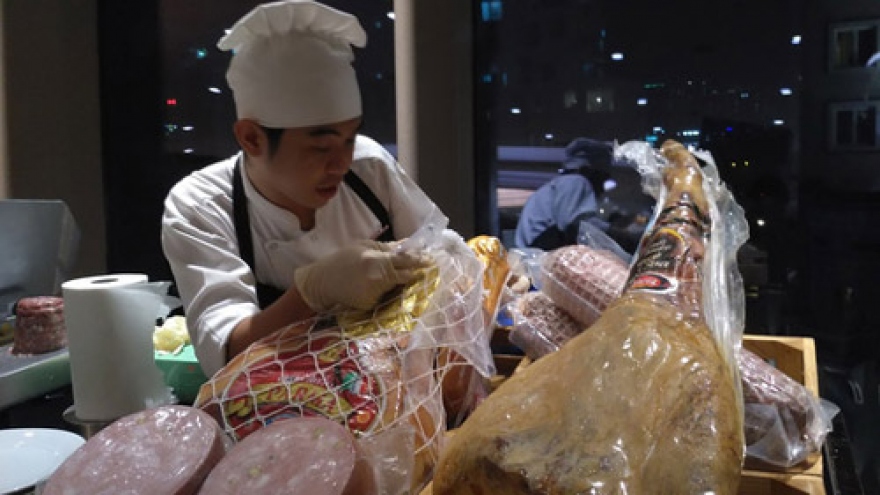Imported meat forecast to flood Vietnamese market
Imported meat has been forecast to prevail in the Vietnamese market, posing challenges for domestic products and businesses.
Vietnam’s husbandry sector is expected to face myriad difficulties in the near future when trade barriers are removed following the ratification of free trade agreements.
Along with Australian beef, meat imported from Europe, Japan, and Indonesia is anticipated to steal the heart of Vietnamese customers thanks to attractive quality and affordable prices, while domestic food is still offered at a rather high quote.
During the 14th Vietnam International Trade Fair recently held in Ho Chi Minh City, many visitors were intrigued by the presentation of a type of premium beef from Indonesia’s PT Santosa Agrindo company.
 |
| Consumers shop for Australian beef at a supermarket in District 7, Ho Chi Minh City. |
Safuan Kasno Soewondo, vice-president of the firm, was advertising his product to the Vietnamese consumers and seeking partners in the country.
Earlier in November, 42 businesses from member nations of the European Union had conducted a survey on the Vietnamese market.
According to Phil Hogan, EU’s commissioner of agriculture and rural development, the companies hoped to push forward their export of beef and pork to the Southeast Asian country once the EU-Vietnam free trade agreement takes effect.
Meat imports are still in high demand from local restaurants and hotels despite the currently high tax rate, between 14% and 30%, experts said, asserting that the products would flood the market if tariffs are removed.
Fierce competition
While Indonesian and European businesses are aiming at the high-end segment in Vietnam, Australian beef is dominating the lower end of the spectrum.
According to the Animal Husbandry Association of Vietnam (AHAV), cost of domestic meat is high due to a limited source of animal feed and technology, making it difficult for Vietnamese meat to compete against its foreign equivalent.
Local businesses will grapple with more challenges when tax and other trade barriers are counted in as the result of free trade agreements.
“The poultry industry in the country has been heavily affected by cheap imported chicken. The beef and pork sectors could suffer as well,” said Nguyen Van Ngoc, an official from the AHAV.
The Vietnamese husbandry sector is still sluggish compared to other nations, Ngoc remarked, adding that it was not due to the lack of technology but how local businesses run their operations.


